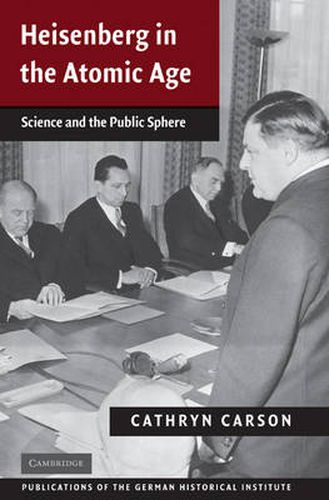Readings Newsletter
Become a Readings Member to make your shopping experience even easier.
Sign in or sign up for free!
You’re not far away from qualifying for FREE standard shipping within Australia
You’ve qualified for FREE standard shipping within Australia
The cart is loading…






The end of the Second World War opened a new era for science in public life. Heisenberg in the Atomic Age explores the transformations of science’s public presence in the postwar Federal Republic of Germany. It shows how Heisenberg’s philosophical commentaries, circulating in the mass media, secured his role as science’s public philosopher, and it reflects on his policy engagements and public political stands, which helped redefine the relationship between science and the state. With deep archival grounding, the book tracks Heisenberg’s interactions with intellectuals from Heidegger to Habermas and political leaders from Adenauer to Brandt. It also traces his evolving statements about his wartime research on nuclear fission for the National Socialist regime. Working between the history of science and German history, the book’s central theme is the place of scientific rationality in public life - after the atomic bomb, in the wake of the Third Reich.
$9.00 standard shipping within Australia
FREE standard shipping within Australia for orders over $100.00
Express & International shipping calculated at checkout
Stock availability can be subject to change without notice. We recommend calling the shop or contacting our online team to check availability of low stock items. Please see our Shopping Online page for more details.
The end of the Second World War opened a new era for science in public life. Heisenberg in the Atomic Age explores the transformations of science’s public presence in the postwar Federal Republic of Germany. It shows how Heisenberg’s philosophical commentaries, circulating in the mass media, secured his role as science’s public philosopher, and it reflects on his policy engagements and public political stands, which helped redefine the relationship between science and the state. With deep archival grounding, the book tracks Heisenberg’s interactions with intellectuals from Heidegger to Habermas and political leaders from Adenauer to Brandt. It also traces his evolving statements about his wartime research on nuclear fission for the National Socialist regime. Working between the history of science and German history, the book’s central theme is the place of scientific rationality in public life - after the atomic bomb, in the wake of the Third Reich.